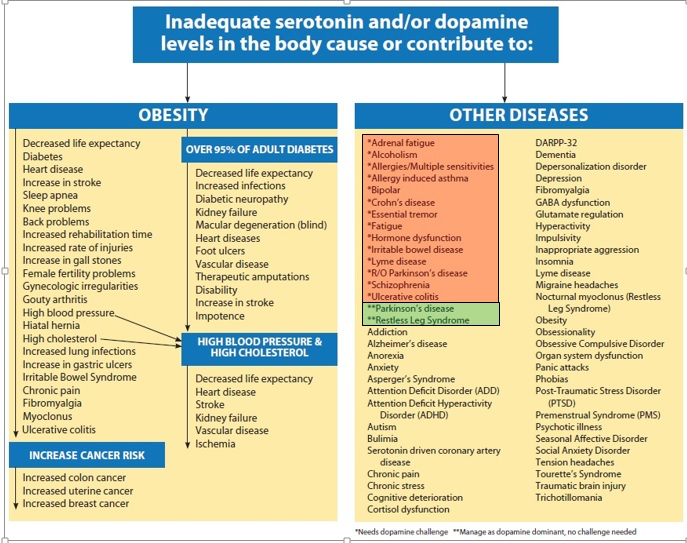myoclonus end of life
Myoclonus is a neurology disorder associated with quick involuntary muscle movements. Ad Products empowering scientists at every stage helping to deliver scientific breakthroughs.
JAMAevidence is a subscription-based resource from McGraw Hill and JAMA that features trusted content from the best minds in medicine.

. There are several forms of myoclonus. Clinicians should routinely reassess risks benefits and response to pharmacotherapies and adjust as appropriate. Myoclonus at the End of Life What Is Palliative Sedation and When Is It Appropriate.
Severe seizures or myoclonus can be life-threatening. Either in sequence in a pattern of movement or without pattern. The twitching cannot be stopped or controlled by the person experiencing it.
It may be a normal phenomenon as in the so-called sleep starts. Kidney function worsens over time until the kidneys are no longer able to filter fluids and waste products from the. Myoclonus is not necessarily pathological.
Myoclonus refers to a sudden involuntary jerking of a muscle or group of muscles. It describes a clinical sign and is not itself a disease. Opsoclonus-myoclonus syndrome OMS is an inflammatory neurological disorder.
Some of the most common forms of myoclonus are hiccups or sudden jerks before falling asleep. Myoclonus refers to a sudden involuntary unintended jerking of a muscle or group of muscles. A hiccup is an example of this type of myoclonus.
This procedure records the electrical activity of your brain and may help determine where in your brain the myoclonus originates. Other familiar examples of myoclonus are the jerks or sleep starts that some people experience while drifting off to. In this procedure doctors attach small electrodes to your scalp.
At the end of life the body needs to conserve energy. Evidence and Experience online now exclusively on JAMAevidence. JNS places special emphasis on articles that.
Either in sequence in a pattern of movement or without pattern. Get detailed information about EOL issues and the role of the oncologist in this clinician summary. In its simplest form myoclonus consists of a muscle twitch followed by relaxation.
It is not in itself a disease. ESRD is a subset of chronic kidney disease CKD stage 5 in which patients undergo dialysis or receive a kidney transplant. Alternatively it may signal non-organic illness 8 of myoclonus is.
It often comes on very suddenly and it can be chronic. Myoclonic jerks may occur. It causes significant issues with motor skills eye movements behavior language disturbances and sleep problems.
If you have been diagnosed with OMS some symptoms can last throughout your life. Leading life science supplier for your research development or production needs. Myoclonus is defined as sudden and involuntary movements caused by focal or generalized muscle.
Myoclonus refers to sudden brief involuntary twitching or jerking of a muscle or group of muscles. In its simplest form myoclonus consists of a muscle twitch followed by relaxation. When pathological myoclonus is a symptom of a broad range of neurological and systemic diseases.
The following empirical advice has been extrapolated from published evidence of delirium and myoclonus for patients nearing the end of life. It includes the muscle jerk or startle motion sometimes experienced whilst falling asleep. Read chapter 31 of Care at the Close of Life.
When kidney problems occur an early sign is excess protein in the urine proteinuria. Myoclonus is random involuntary jerking involving single muscles or muscle groups. You may be asked to breathe deeply and steadily and look at bright lights or listen to sounds as these actions may uncover abnormal electrical activity.
The definitions of status myoclonus. It is not in itself a disease. These movements normally dont present a problem and can occur in healthy people or those with certain movement disorders like epilepsy.
In its simplest form myoclonus consists of a muscle twitch followed by relaxation. Certain processes such as digestion will slow and eventually stop. There are several forms of myoclonus.
How can caregivers provide emotional support to dying loved ones. Myoclonic jerks may occur. Myoclonus refers to a sudden involuntary unintended jerking of a muscle or group of muscles.
An increase in fluid volume at the end of life can overload the circulatory system and result in pulmonary oedema and increased respiratory secretions. The last days of life in cancer involves managing end-of-life EOL care issues for a wide range of possible symptoms and ethical dilemmas. Multifocal myoclonus is associated with brain damage neurological degenerative disease and viral infections involving the.
Involuntary movements called myoclonus changes in heart rate and loss of reflexes in the legs and arms are additional signs that the end of life is near. Clinical Governance Ethics and End of Life. Reviewed by a board-certified physician.
Myoclonus is a brief less than half a second contraction involving agonist and antagonist muscles leading to a sudden jerk. Ethics and End of Life. INTRODUCTION AND PATIENT PROFILE he patient presented is a 59-year-old African-American man with end-stage renal disease ESRD.
Myoclonus can begin in childhood or adulthood with symptoms ranging from mild to severe.

Pin On Autoimmune Encephalitis

Having An Extreme Case Of Jme Where Those Jerks Are So Intense You Slam Your Head Repeatedly Into Anything Nea Myoclonic Seizures Myoclonic Epilepsy Epilepsy

Pin On Autoimmune Encephalitis

Pin On Autoimmune Encephalitis

Pin On Autoimmune Encephalitis

Pin By Kelly Armstrong On Body Works Trigeminal Neuralgia Trigeminal Neuralgia Treatment Neuralgia

Pin On Autoimmune Encephalitis

Pin By Kelly Armstrong On Body Works Trigeminal Neuralgia Trigeminal Neuralgia Treatment Neuralgia

Pin On Neuralgia Del Trigemino

Pin By Kelly Armstrong On Body Works Trigeminal Neuralgia Trigeminal Neuralgia Treatment Neuralgia

Ocrevus V Rituxan Neurologists Respond To Ms Patients Concerns Wordpress Boutique En Ligne Blog

Ocrevus V Rituxan Neurologists Respond To Ms Patients Concerns Wordpress Boutique En Ligne Blog






